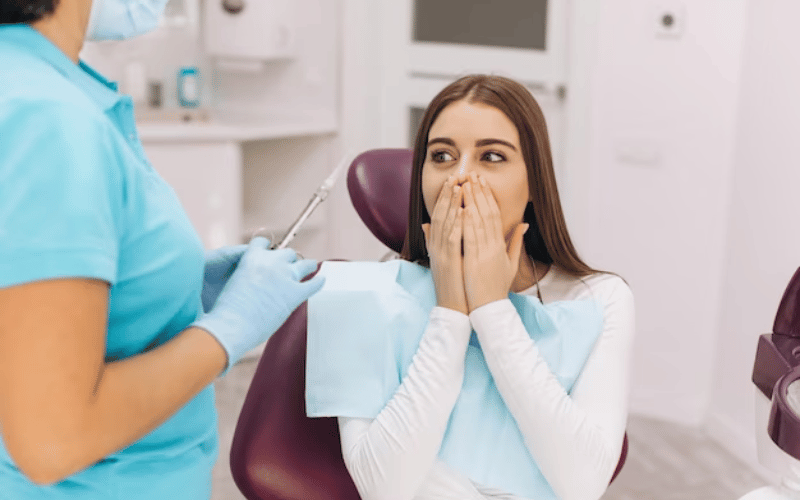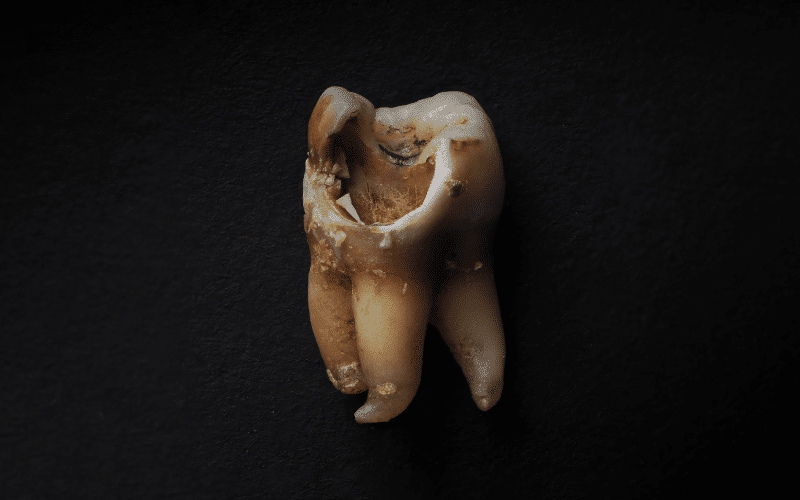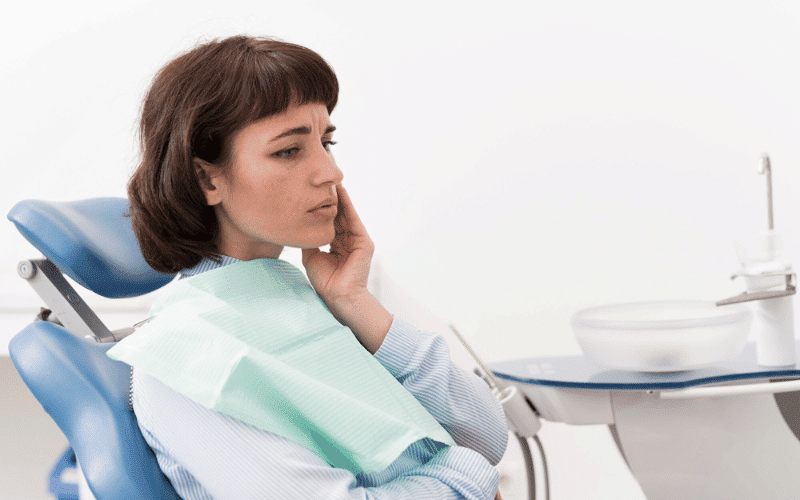
What is Dental Anxiety?
Dental anxiety refers to the fear or apprehension individuals experience when facing dental procedures or visiting the dentist. It can manifest as nervousness, panic, or avoidance behavior, often stemming from past negative experiences, fear of pain, or embarrassment about oral health. Symptoms may include increased heart rate, sweating, and difficulty breathing.
Dental anxiety can lead to avoidance of necessary dental care, resulting in deteriorating oral health. Techniques like sedation, relaxation exercises, and cognitive-behavioral therapy manage fear and improve patient experience, ensuring regular dental visits and optimal oral health maintenance.
Common Triggers and Symptoms
1. Past Negative Experiences: Previous painful or unpleasant dental procedures can trigger anxiety, leading to fear of similar experiences in the future.
2. Fear of Pain: The anticipation of pain, whether real or perceived, can evoke fear in individuals, causing them to avoid dental appointments.
3. Feeling of Helplessness or Loss of Control: Some individuals may feel anxious due to vulnerability while sitting in the dental chair, unable to control the situation.
4. Embarrassment or Self-Consciousness: Concerns about the appearance of one’s teeth, breath, or overall oral health can lead to feelings of embarrassment, contributing to dental fear.
5. Sensory Overload: The sights, sounds, and smells commonly associated with clinics, such as the sound of drills or disinfectants, can trigger anxiety in sensitive individuals.
Psychological and Physical Effects of Dental Anxiety
1. Psychological Effects:
1. Stress: Dental anxiety can lead to chronic stress, impacting overall mental well-being.
2. Avoidance Behavior: Individuals may avoid dental appointments altogether, leading to deteriorating oral health and exacerbating dental problems.
3. Negative Coping Mechanisms: Some people may resort to unhealthy coping mechanisms, such as substance abuse or overeating, to manage their anxiety.
4. Impact on Self-Esteem: Dental fear may contribute to low self-esteem and self-consciousness, mainly if it affects oral hygiene and dental appearance.
5. Social Withdrawal: Severe anxiety can lead to avoidance of social situations or interactions, impacting relationships and quality of life.
2. Physical Effects:
1. Dental Health Decline: Avoiding dental care due to fear can worsen oral health conditions, such as tooth decay, gum disease, and oral infections.
2. Chronic Pain: Untreated dental issues can lead to chronic pain and discomfort, further exacerbating anxiety and stress.
3. Muscle Tension: During dental procedures, individuals may experience muscle tension and stiffness, leading to physical discomfort and exacerbating anxiety.
4. Gastrointestinal Distress: Severe anxiety can manifest in symptoms such as nausea, vomiting, or gastrointestinal discomfort before or during dental appointments.
5. Cardiovascular Response: The body’s stress response to dental anxiety can increase heart rate, elevate blood pressure, and cause other cardiovascular symptoms.
How Dental Anxiety Affects Oral Health?
1. Delayed Dental Care: It often leads individuals to delay or avoid seeking necessary oral treatment, resulting in the progression of oral health problems such as cavities, gum disease, and infections.
2. Poor Oral Hygiene: Anxiety about visiting the dentist may lead to inconsistent oral hygiene habits, including inadequate brushing and flossing, increasing the risk of plaque buildup, tooth decay, and gum disease.
3. Increased Risk of Tooth Loss: Untreated oral issues, exacerbated by dental anxiety, can ultimately lead to tooth loss, as conditions like advanced decay or gum disease may necessitate extractions if left untreated.
4. Worsening Dental Conditions: Dental anxiety can contribute to the exacerbation of existing dental conditions, as individuals may postpone treatment until their oral health deteriorates further, requiring more extensive and invasive procedures.
5. Impact on Overall Health: Poor oral health resulting from dental anxiety can have broader implications for overall health, as oral infections and inflammation have been linked to systemic conditions such as cardiovascular disease, diabetes, and respiratory infections.
Tips for Managing Dental Anxiety
1. Communication with the Dentist: Openly discussing fears and concerns with the dentist can help alleviate anxiety. Dentists can explain procedures, offer reassurance, and adjust their approach to accommodate the patient’s needs.
2. Gradual Exposure: Gradually exposing oneself to dental settings and procedures can desensitize anxiety over time. Start with short visits for minor procedures or even to familiarize oneself with the environment before progressing to more extensive treatments.
3. Relaxation Techniques: Employ relaxation techniques such as deep breathing, mindfulness meditation, or visualization exercises to reduce stress and promote a sense of calmness during dental appointments.
4. Sedation Options: Explore sedation options with the dentist, such as nitrous oxide (laughing gas), oral sedatives, or intravenous sedation, to help manage anxiety and discomfort during procedures.
5. Distraction Techniques: Bring headphones to listen to calming music audiobooks or use stress balls or fidget toys to distract the mind from anxious thoughts during dental procedures.
Wrap Up!
In conclusion, managing dental anxiety is crucial for maintaining oral health and well-being. At Ortega Cottage Dentistry, we understand the challenges of dental anxiety and strive to provide a comfortable and supportive environment for all our patients.
We aim to help individuals overcome their fears and receive the dental care they need through effective communication, gradual exposure, relaxation techniques, and sedation options. Don’t let anxiety hold you back from a healthy smile.
Schedule an appointment with Ortega Cottage Dentistry today and take the first step towards a brighter, happier dental experience. Embrace your smile without fear!





